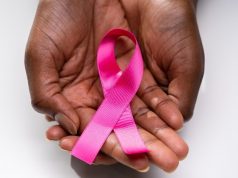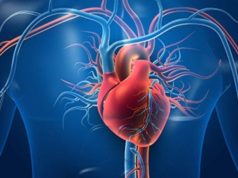Obesity independently associated with treatment-related cardiotoxicity in breast cancer patients
TUESDAY, Dec. 24, 2019 (HealthDay News) — Obesity is associated with an increased risk for cardiotoxicity among patients receiving treatment for breast cancer, according to a study published online Dec. 23 in PLOS Medicine.
Elisé G. Kaboré, from Inserm U1018 Centre for Research in Epidemiology and Population Health in Villejuif, France, and colleagues used prospective data from 26 French cancer centers to examine the correlation of body mass index with cardiotoxicity, which was defined as a decrease in left ventricular ejection fraction (LVEF) >10 percent from baseline to LVEF <50 percent. Data were included for 929 patients with stage I to III breast cancer treated with anthracycline and/or trastuzumab.
Nearly 50 percent of the study population was overweight or obese at baseline. The researchers found that cardiotoxicity occurred in 3.2 percent of patients during a mean follow-up of 22 ± 2 months following treatment completion. Compared with the normal-weight group, the obese group was significantly more prone to cardiotoxicity (9/171 versus 8/466 patients). Obesity and trastuzumab administration were independently associated with cardiotoxicity in multivariable analysis (odds ratios, 3.02 and 12.12, respectively).
“Our results should encourage further research into the mechanisms linking obesity to cardiotoxicity, and personalized risk assessment for cardiac complications following cardiotoxic therapies could offer several potential benefits to patients,” the authors write.
Two authors disclosed financial ties to the pharmaceutical industry.
Copyright © 2019 HealthDay. All rights reserved.








